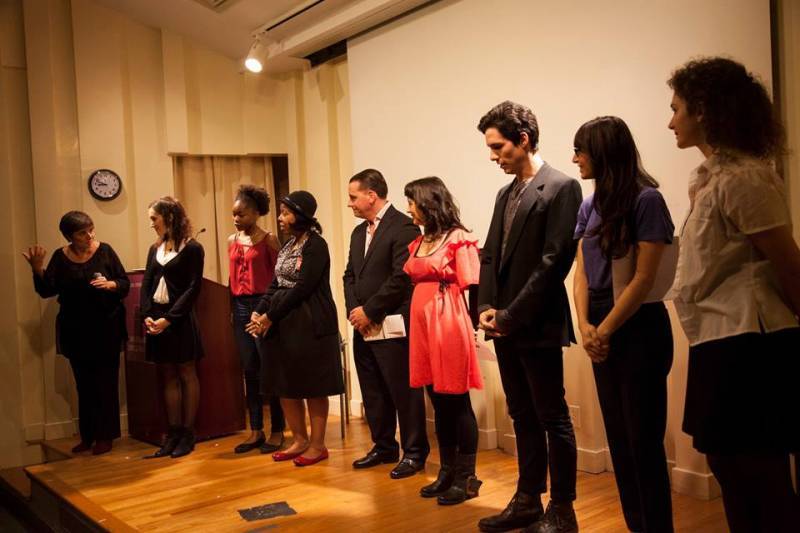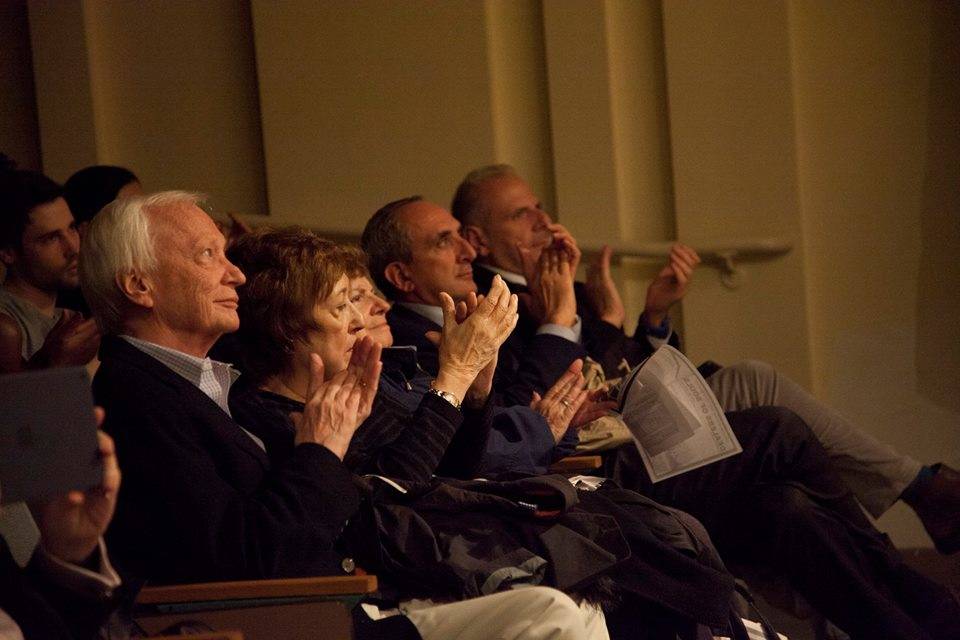A Voice that Could not Be Silenced: Pier Paolo Pasolini
“He is dark and somewhat frail, a handsome man with hollow cheeks and black circles beneath his eyes.” In just a few words New York Times journalist Guy Flatley described the Italian film director sitting across from him: Pier Paolo Pasolini.
It was 1969, Pasolini was in New York participating at the New York Film Festival with the film
Teorema. “He was a lovely person, but I thought he was a bit stiff,” Flatley recalled on November 2, 2015, 40 years after the filmmaker's death, at a special celebration, Pasolini 1975-2015, held at Casa Italiana Zerilli Marimò.
Organized by Casa's theater company in residence, Kairos Italy Theater, and co-hosted with the Italian Cultural Institute, the evening was a special treat for admirers of all ages. A surprise after the other provided additional insight into the life and art of the beloved director.
The first part, PPP: a Marxist in NY, a reading conceived by Marco Calvani, featured Antoinette LaVecchia in the role of Oriana Fallaci, Rocco Sisto, in the role of Pasolini himself, while Gabriella Maione read some of his poetry. Maione starred, at 17, in Pasolini's Decameron.
Journalist Oriana Fallaci met Pasolini when he was in New York and she invited him out for drinks and a conversation. That was the beginning of their friendship. The interview was masterfully used to provide details about “his private figure and his public persona.”
More details were provided by actress Gabriella Maione, who was discovered by the director at the airport on her way to Paris where she was a student. She had never acted before, as the majority of “actors” in his films, and she was afraid of not being to do so. But Pasolini was very gentle and let her do whatever she wanted to. “He was very trusting,” Maione said, “he made you feel free to do what you felt like doing but that didn't mean he had no control.
On the first day they made me write my own part and I never really saw a script.” Maione played the role of Madonna Fiordaliso, the diabolical but beautiful Sicilian woman who seduces Andreuccio. “They used me, a girl with an angelical face to play a diabolical role,” Maione continued, “Faces were so important to Pasolini. He liked lack of harmony, lack of proportion: the people who worked for him were actually scared of who he will cast.”
During the fictional interview the Oriana Fallaci character describes Pasolini as a man always on the lookout, fascinated by the people of New York, the way they looked, they dressed. He would go everywhere, in Harlem, Williamsburg and areas where even the Police was scared. She describes the fear that something bad would happen to him but his total unconcerned attitude.
During the evening's second part Interviewing Pasolini, Guy Flatley spoke about the director's attitude as well. “He made an effort to be charming and interesting but I was afraid the interview was going to be a bore,” Flatley admitted, “I was instructed to ask only certain questions, very specific to the film, nothing personal or political. But then he started clowning around and that was one of the most memorable interviews of my career.” Flatley also enjoyed the film, although people in the US didn't really understand it.
Still, he was loved. “He was not widely popular, but people did know him and his work. And that was enough.” Pasolini left New York in 1969, never to come back, although he definitely wished to. His death came just a few years later. His death was briefly discussed but the evening's scope was to celebrate his persona and his work, his relationship with New York, his poetry and its influece on today's young poets. Not his death.
Indeed, the third part of the evening Free Verse Poets for Pasolini featured some of Pasolini's Roman Poems and poetry of young New York poets. Co-curated by Laura Caparrotti, founder and artistic director of Kairos Italy Theater, and Dave Johnson, poet, the final segment featured actors reading some of his verses while young poets from the Bronx read their own pieces. Most people know Pasolini for his films, but are not aware that he was primarily a poet, publishing nineteen books of poems during his lifetime. In his poetry his unmediated voice roars.
“When he was killed, his voice was silenced,” Giorgio Van Straten, the new director of the Italian Cutural Institute of New York has said, “but now, forty years later was are here talking about him, his public persona and his art. This is proof that he is still speaking.”







































i-Italy
Facebook
Google+
This work may not be reproduced, in whole or in part, without prior written permission.
Questo lavoro non può essere riprodotto, in tutto o in parte, senza permesso scritto.